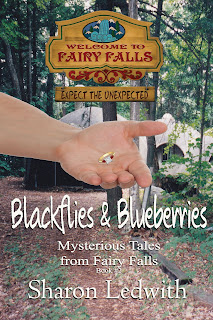Friday Features’
We talk about
Things we can’t live without in our offices
We mashed together our list of “can’t live without” into one since we co-write our books but we have separate offices.
1. The Chicago Style Manual, or an AP Style Manual. Catherine personally prefers the AP manual for ease of finding things, but many houses like the Chicago Style Manual. These are great for answering your punctuation, spelling, and other writing questions. Of course now there’s the internet for up-to-date style questions.
2. A good dictionary. One that has the dates words came into use is good if you write historicals. Catherine actually has three dictionaries in her office from different eras. Donald has two.
3. A good thesaurus. Roget’s Super Thesaurus is a good one that sits on Catherine’s desk. Donald uses his mother’s old crossword puzzle books that give alternate words.
4. A reverse dictionary on Catherine’s desk, for when she knows what she wants to say, but can’t think of the word.
5. Lots of scrap computer paper to print manuscript pages on. We can often see mistakes on the written page that we don’t see on the computer screen.
6. Notebooks for taking to conference workshops. It’s great to have all those notes gathered in one place when you come home from a conference or writing class. You can just pull out the notebook and leaf through to find what you want.
7. A fancy eyeglass case for Catherine, so she doesn’t lose her computer glasses under a pile of papers, and …
8. An eyeglasses lens wiping cloth, because clean glasses make computer work a whole lot easier. Thanks to our niece, Jacque for these items.
9. A baby name book for those times when you’re stuck and can’t come up with a character name.
10. A selection of reference books that relate to the genre, or genres you’re writing. In Catherine’s office, these range from books on Manners for Men (and Women) in Victorian times, to paranormal phenomena, to books on the American West and Indians to Celtic religions and myths, to the Bible and Bible quotation books. For Donald the books range from Physics, An Exact Science, to books on how to make or fix things, to anatomy, first aid and sports training.
11. Extra printer ink, because we hate when we run out of ink mid-printing. It always happens late at night when the local Staples store is closed.
12. A good office chair, because your bum can go numb if you sit too long.
13. A space heater, because sitting in the office in the winter can get rather chilly.
14. A headset for Catherine on her phone so she can talk and type. This was invaluable when she was freelancing and did many phone interviews. She could type the notes in the computer and wouldn’t have to transpose later. She learned how to type pretty fast doing that.
15. A file cabinet, or two, or six, or eight for Catherine. She’s a paper person.
16. A selection of writing craft books. A few of Catherine’s favorites are:
Creating Character Emotions by Ann Hood
Writing Dialogue by Tom Chiarella
Writing the Breakout Novel by Donald Maass
17. Lots of book shelves for both. We are bibliophiles.
18. Three ring binders to put character sheets, plotting notes, and other notes related to the WIP. Also handy for the world book to keep things straight as the series is written.
19. A computer desk with a slide out tray for writing on. Catherine does a lot of hand notes and it’s much handier to just reach over than it would be to swivel around to the office desk to write notes. Donald just flips screen on the computer to make his notes.
20. A CD player for Catherine, because sometimes, but not often, she wants music when working. Donald doesn’t have a player because we often work together in his office and trying to talk over music can be difficult. Besides, he can hear Catherine’s through the wall.
What do you have in your office? Please share what you can’t write without in your comments. There might be something we could use.
When you have looked around your office to see what you have perhaps you might be interested in our newest book Ghosts and Gardenias available for pre-order now on Amazon, the first book in our Haunting of Garnoa Road Series.
Here’s the blurb:
Susan Trowbridge is the victim of mistaken identity, trapped in the past by a ghost and a haunted wedding gown. To return home she must discover the identity of the ghost’s murderer. Can Susan stop the murder, or will history repeat itself, with her as the victim this time? And if she does stop the murder, must she return home and leave the man she has come to love?
Duncan Hawthorn is a man battling his own demons. But when Susan falls into his life, Duncan finds himself inexplicably attracted to a woman he thought he hated. Should he believe she is in danger? Should he believe her irrational claims that she is from the future? Either way, he realizes he will lose the woman who has become his salvation and his true love.
Here is the links for our other books to add to your collection:
You can find our books on our book page, under the menu at the top of the page or on our Amazon Author Page
Read Full Post »












